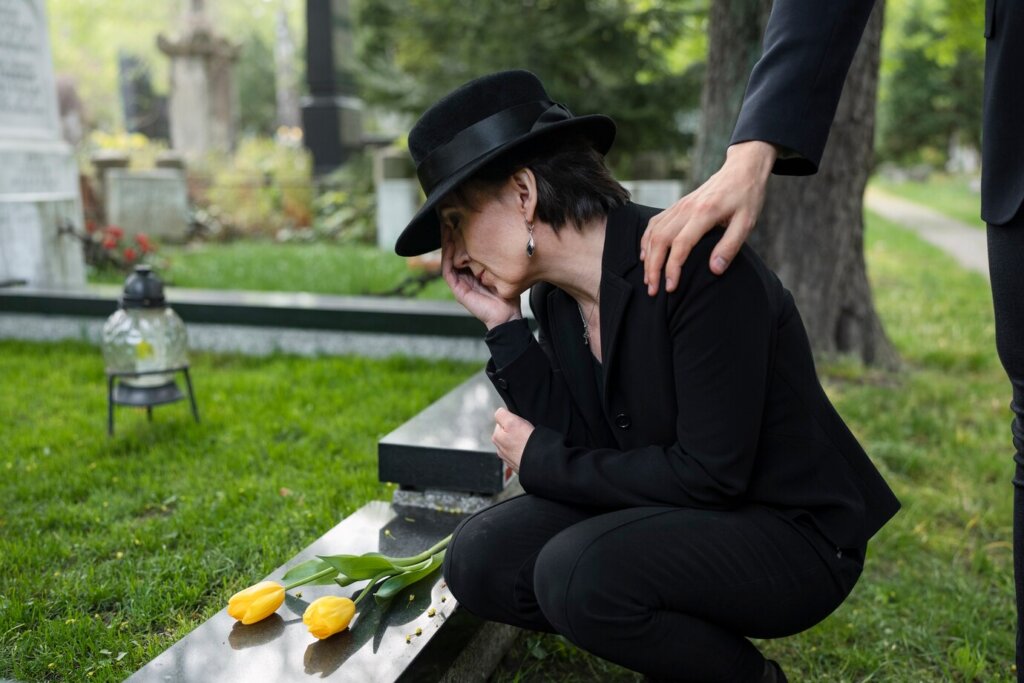Buying or living in a home often comes with its share of surprises—some pleasant, others less so. One unsettling realization that homeowners sometimes face is discovering that someone may have passed away on the property. Whether you’re curious out of historical interest, or planning to sell your home and want to be transparent, you may be wondering: how to know if someone died in your house?
In this guide, we’ll break down why this information might matter, how to uncover it, what tools and legal rights are at your disposal, and what to do once you’ve got the answers.
Why Does It Matter If Someone Died in a House?
People have different reactions to the idea of someone dying in a home. For some, it may simply be a curiosity. For others—particularly buyers—it can be a dealbreaker or a point for negotiation. In certain states, known deaths on a property may need to be disclosed by law, especially if they are recent or considered a “stigmatized” event (like a murder or suicide).

Here’s why people care:
- Emotional comfort: Some people feel uneasy living in a home with a tragic history.
- Resale value: Future buyers may be deterred by a death on the property.
- Legal obligation: In some areas, sellers must disclose deaths within a certain timeframe.
- Historical or paranormal interest: Deaths may be linked to stories, legends, or hauntings.
So, if you’re wondering how to know if someone died in your house, you’re definitely not alone—and your reasons are valid.
What Types of Deaths Are Typically Recorded?
It’s important to note that not all deaths are treated equally in terms of disclosure. For instance:
- Natural deaths (due to illness or age) are often not required to be disclosed.
- Suicides may fall into a gray area, depending on the jurisdiction and the timeframe.
- Murders or violent crimes often must be disclosed due to their psychological impact on buyers.
Laws vary by state, but generally, if a death could impact the value or desirability of the property, it may need to be revealed.
How to Know If Someone Died in Your House: 7 Effective Ways
Here are the most reliable methods to find out whether someone died in your home:
1. Use DiedInHouse.com
This paid service is one of the most straightforward tools available. By entering your address, DiedInHouse.com searches multiple records including death certificates, news reports, and police records to check if someone died at that address.
Pros:
- Quick and relatively accurate
- Includes other property history details
Cons:
- Not free (typically around $12 per report)
- May not be exhaustive, especially for older records
2. Check Local Public Records
Many counties and cities maintain death records that are publicly accessible. You can visit the county clerk’s office or check their website to look up death certificates or coroner’s reports.
Tips:
- Focus on the timeframe since the house was built.
- You’ll need the property’s legal description or parcel number in some cases.
3. Search Newspaper Archives
Obituaries and news reports can be incredibly revealing. If someone died in a home due to unnatural causes, especially a crime, it likely made the news.
Try the following:
- Search your address + “died” or “murder” in local news sites.
- Use newspaper archive tools like Newspapers.com or local library digital databases.
4. Talk to Neighbors
Longtime neighbors can be a goldmine of information. They might remember if emergency services ever visited the home, if there was a funeral held there, or if rumors circulated about a previous owner passing away.
Approach with curiosity and respect. You might be surprised what you learn.
5. Ask the Real Estate Agent or Previous Owner
In many states, sellers are legally required to disclose if a death occurred on the property—if asked. While some may volunteer the information, others may only share it if prompted.
Don’t hesitate to ask direct questions like:
- “Did anyone die in this home?”
- “Are there any events I should be aware of that may affect the value?”
6. Look Up Police Records
Depending on local laws and privacy regulations, you might be able to request police call logs, incident reports, or crime scene records associated with your address.
These can often be obtained through:
- Freedom of Information Act (FOIA) requests
- Local law enforcement agencies
This method can be especially helpful if you suspect foul play or criminal activity.
7. Hire a Property Investigator
If you’re hitting dead ends but still have concerns, private investigators can dig deeper. They can access proprietary databases and piece together a history that would take you weeks (or months) to assemble.
How to Know If Someone Died in Your House: State-by-State Disclosure Laws
Let’s revisit our title again in the context of legal responsibility—how to know if someone died in your house isn’t just about curiosity; in some states, it’s about legal liability.
Here’s a quick overview:
- California: Must disclose any death within the past 3 years.
- Texas: No legal requirement to disclose deaths due to natural causes, suicide, or accidents unrelated to property condition.
- New York: Sellers are not required to disclose any death.
- Florida: No disclosure required unless asked.
Check with a local real estate attorney or agent to understand the rules in your area. Even if not legally required, being transparent can prevent future issues with buyers.
What to Do If You Discover Someone Did Die in Your Home
So, what if you uncover that someone did, in fact, die in your home?
1. Don’t Panic
Many homes—especially older ones—have histories that include deaths. It doesn’t necessarily impact property value or make your home unlivable.
2. Evaluate Your Legal Obligation
If you’re planning to sell, check your state’s disclosure laws to know whether you’re legally required to inform buyers.
3. Consider Professional Cleaning (If Recent)
If the death was recent or traumatic (e.g., unattended death), consider hiring a trauma cleaning service. These professionals ensure the space is thoroughly and safely restored.
4. Use it as a Selling Point or History Nugget
Some buyers love historical properties, ghost stories, or unique home histories. Framing the story properly can make your home more interesting—if handled tastefully.

Final Thoughts
Figuring out how to know if someone died in your house might seem like a strange rabbit hole to go down, but it’s completely valid. Whether you’re buying, selling, or simply curious, knowing the full story of your property can offer peace of mind—and even help you make informed decisions.
Ready to Move On?
If discovering that someone died in your home makes you uncomfortable—or if you’re just ready for a fresh start—it might be time to consider selling. Whether you’re concerned about the property history or simply want to relocate quickly, there are services that can help.
If you’re looking to sell your home fast in a market like Texas, working with a local property expert or cash home buyer can help you skip the red tape.
For example, if you’re thinking, “I want to sell my house fast El Paso TX,” there are professionals ready to give you a fair cash offer without the hassle of listings, open houses, or disclosures that might slow things down.
Call us anytime at 713-561-5162 or connect with us on our website and we’ll lay out all of your options for your specific situation.
